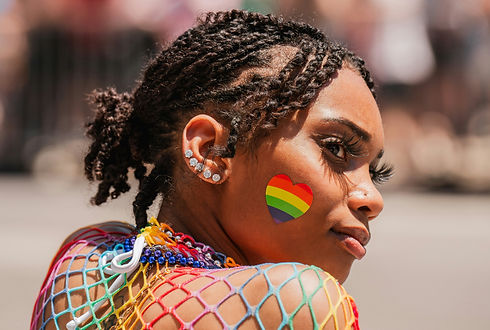

OUT in Nigeria
Collaborative research with CHEVS, Nigeria
Nigeria remains one of the most hostile places in the world for LGBTQI+ people. This prevents queer citizens from engaging in the country’s politics.
Yet withdrawing from these democratic systems leaves little opportunity to improve the extremely discriminatory social, political, and legal environments that Nigeria’s LGBTQI+ communities currently navigate every day.
The study reveals widespread exclusion, criminalisation, and marginalisation of LGBTQI+ individuals from the political arena, stemming from deeply entrenched state-led and societal homo/bi/transphobia.
Nonetheless, the research also highlights remarkable resilience, political awareness, and activism among queer communities, who are pushing to demand inclusion, representation, and rights. Our research suggests that – if this bold and exciting work were to be amplified across Nigeria – the positive change could well soon follow.

Queering Democracy in Nigeria
Exploring LGBT+ Participation and Barriers in Nigeria’s Democratic Landscape
Photo by Mike Cox on Unsplash
“There are quite a lot [of barriers] but I will streamline them to three. 1. Discrimination and
prejudice 2. Legal barriers: Laws criminalising same-sex relationships 3. Social exclusion.” Research respondent
1. Political Consciousness
Many queer Nigerians are politically aware but deeply disillusioned. Apathy is exacerbated by fear of violence, stigmatisation, and lack of meaningful political representation.
2. Political Participation
Only a small number of LGBTQI+ individuals belong to political parties or have voted in elections. Laws like the Same-Sex Marriage Prohibition Act (SSMPA) criminalise queer identities, discouraging open participation in civic life. Intersectional barriers, including gender, disability, and class, deepen this exclusion.
3. Stigma & Discrimination
Queer Nigerians face widespread abuse at polling stations and in public life, often due to their gender presentation. Discriminatory laws legitimise this mistreatment, while politicians have in the past weaponised queer identities to distract from national issues.
4. Safety & Security
Queer Nigerians report high levels of state-led harassment and fear, particularly from police. Nonetheless, many found safety in private queer spaces and peer networks, which remain vital forms of resistance.
5. Activism & Inclusivity
Respondents stressed the urgent need for better support services (mental health, legal aid, healthcare), due to the hostile environment they live in daily. LGBTQI+ activist organisations do an exceptional job but are under-resourced and require funding to meet the scale of demand.









